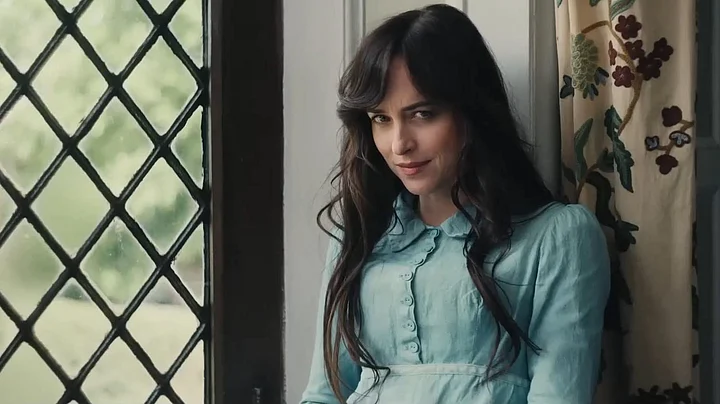Carrie Cracknell’s Persuasion isn’t cinematic genius. And neither does it intend to be. But it does attempt to be a witty comedy of errors with a modern twist. Taking its cue from Fleabag, much of the film rests on the protagonist as she breaks the fourth wall and is jarringly anachronistic.
Following a slew of Jane Austen adaptations, primarily that of ‘Pride and Prejudice’, the film’s seemingly quirky dialogues feel forced despite Dakota Johnson’s Anne Elliot being effortless on screen. Unfortunately, the film could have potentially been seamless with its incorporation of elements from both modern and Regency eras. But it falls flat with its almost gimmicky representation of Austen’s world.
Anne, pines for her lover by drinking wine, crying in the bath, and lying face down on her bed. And although funny in parts, the tonality of the story shifts, suddenly taking itself too seriously. And the plot intermittently weaves in dialogues like “I’m an empath” and “He’s a ten”, jolting the audience away from the film’s otherwise period drama aesthetic.
The film also seems to take a page or two from Greta Gerwig’s Little Woman with its feminist undertones.
And although Gerwig’s work had a more nuanced take, Cracknell is more overt in her endeavour to reimagine the past as a feminist. In one such scene, Lady Russell (Nikki-Amuka-Bird) talks to Anne about how marriage is transactional, seemingly echoing the words of Amy from Gerwig’s film, but less convincing in her delivery.
Fiction can be a great source of history. And reimagining history, although fun, could lead to a skewed idea of the present and the past. In a sense, keeping the skeletons of Austen’s last novel and building a world around it feels contrived and badly researched. Although, that may not be the case.
The film has all the ingredients to be a fun ride. But it was either its lack of originality or taking too much on that failed it.
It was either too busy being Fleabag, or attempting to be modern while never quite landing with its humour. But the film did work in parts. And it could have been better, if the narrative was self-aware.
The love between Anne and Fredrick Wentworth (Cosmo Jarvis) should ideally be central to the plot but it only seems to exist in passing. The narrative is too busy attempting to be witty, without an ounce of subtlety, to give the two enough screen time to fall in love again. But Dakota is a joy to watch, who is in every frame of the film, so no one is complaining.
It’s her grace or lack thereof, that makes the film watchable. She is both chaotic and calm, which is a rare quality in an actor. And although it is often painful to watch her deliver dialogues, juxtaposing the modern with the dated, she does it well. The appearance of Henry Golding as Mr Elliot is also amusing to watch, as he consistently shocks us with his honesty.
But the film could have been more than the sum of its parts, if it tried to be a little less trendy and a little more original.
(At The Quint, we question everything. Play an active role in shaping our journalism by becoming a member today.)
